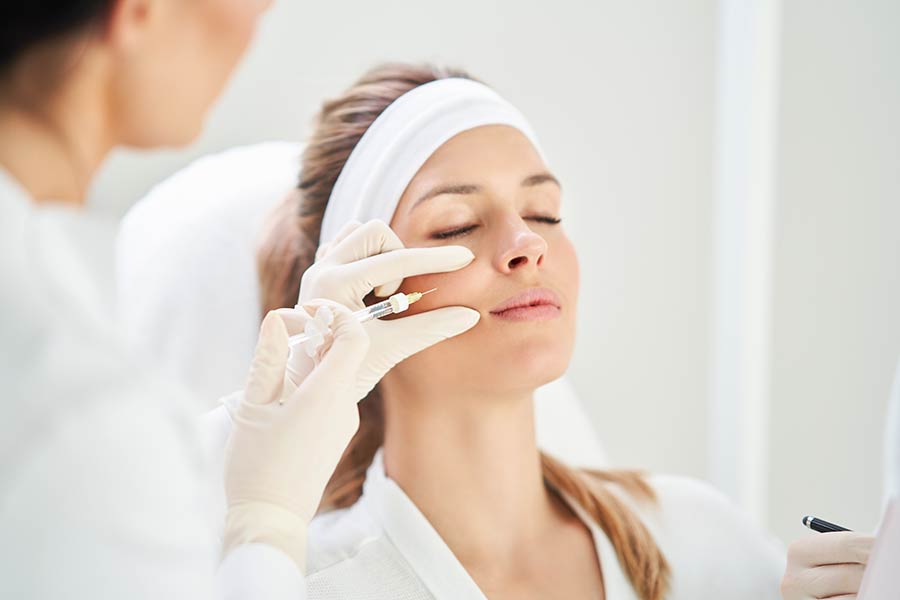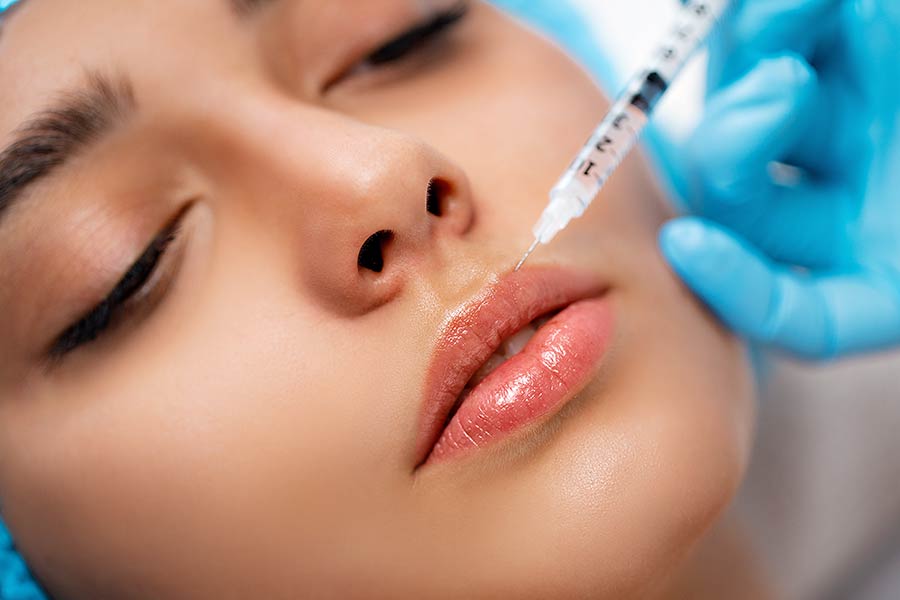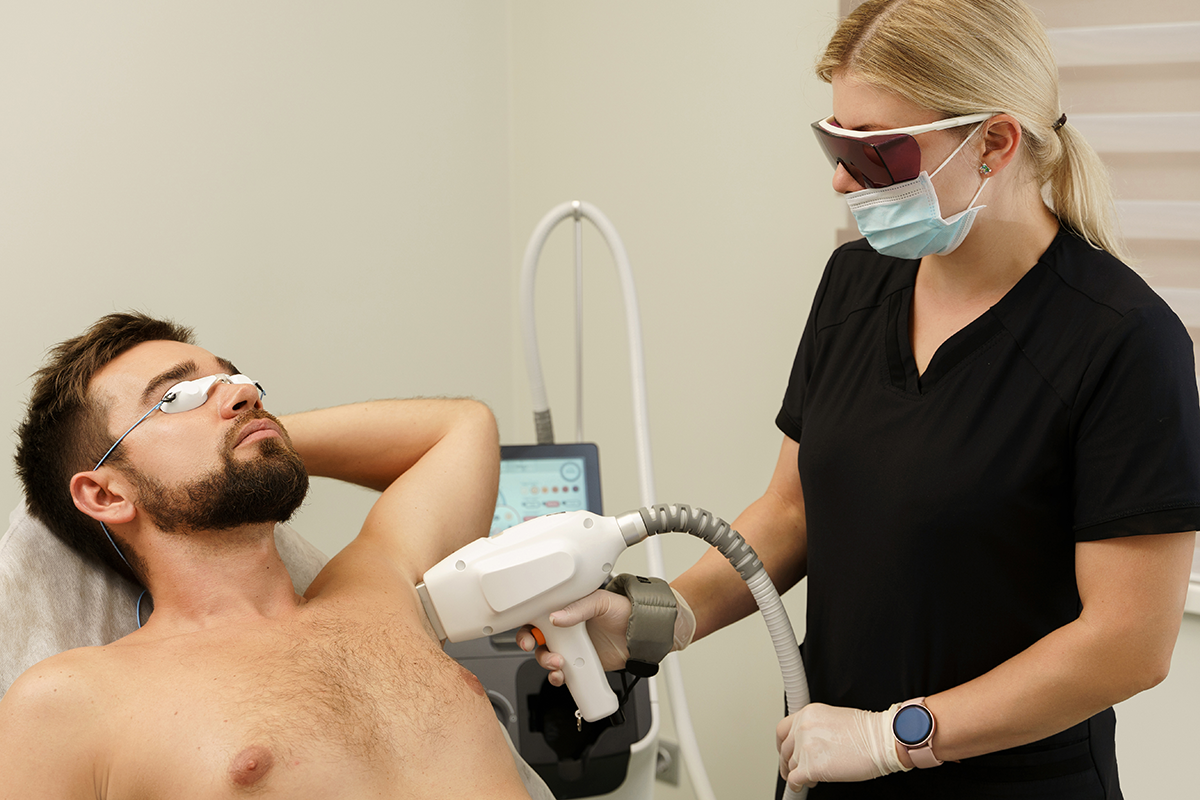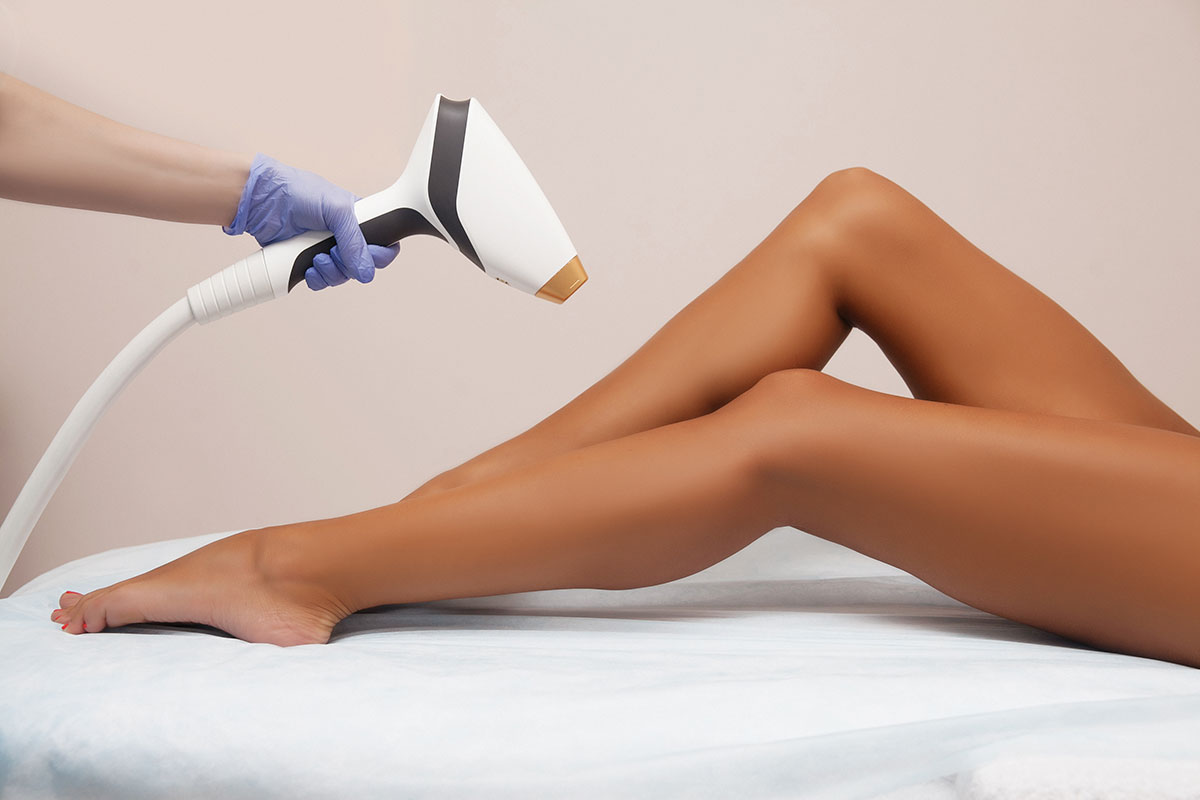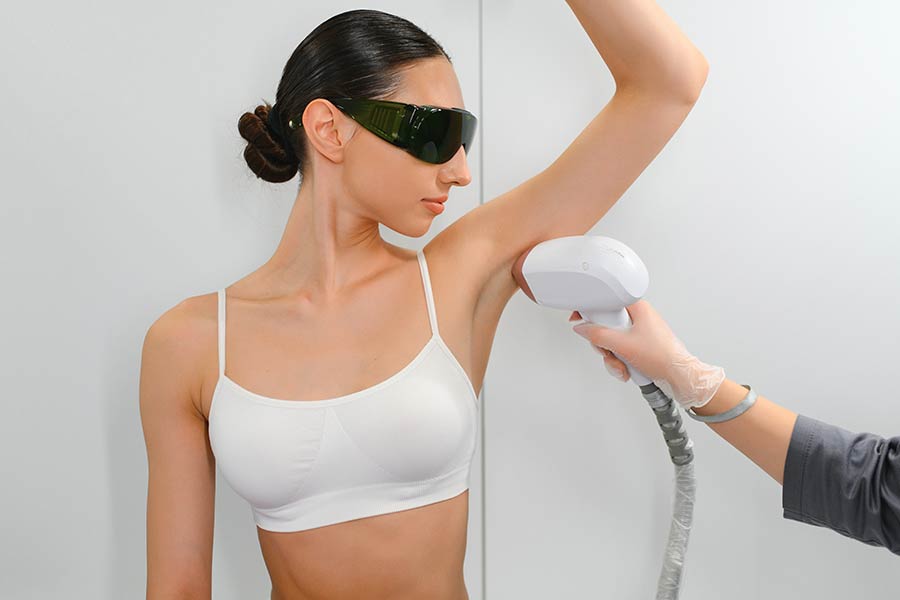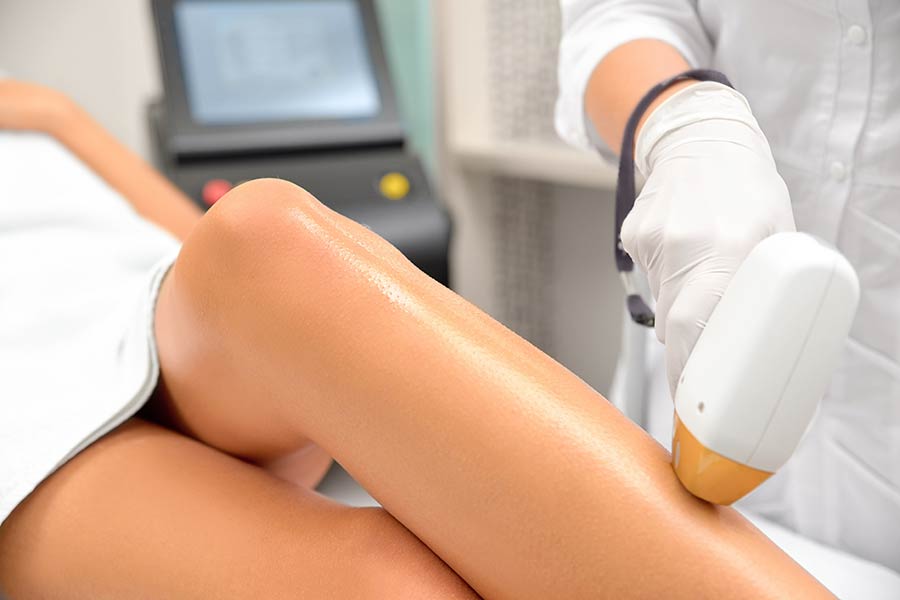Juvederm allergic reactions are rare, but when they happen, they can catch anyone off guard. Most folks sail through their cosmetic procedures with nothing but positive results to show. Yet, a small number find themselves facing unexpected symptoms that can range from mild discomfort to more serious health concerns. Knowing the ins and outs of these reactions is crucial, not just for peace of mind but also for ensuring your safety and well-being. This post dives deep into what causes these reactions, how to spot them early on, and the steps you can take to mitigate any adverse effects. Whether you're contemplating Juvederm for the first time or are a seasoned user, staying informed is your best defense against the unexpected.
Key Takeaways
- Knowing the signs of an allergic reaction to Juvederm is crucial for quick response and management. Look out for symptoms like redness, swelling, or itching at the injection site.
- Assessing risk factors, including previous allergic reactions to fillers or lidocaine, can help minimize potential adverse effects. Share your medical history with your provider.
- Understanding the different types of dermal fillers available can guide you in choosing the safest option for your skin type and allergy history.
- Taking preventive measures, such as opting for a patch test before a full treatment, can significantly reduce the risk of an allergic reaction.
- If you experience side effects, knowing how to manage them effectively—such as using over-the-counter antihistamines or seeking medical advice—can alleviate discomfort and prevent complications.
- Learning from case studies and real experiences shared by others can provide valuable insights and help set realistic expectations for your own treatment outcomes.
Understanding Allergic Reactions
Signs and Symptoms
Juvederm treatments usually go smoothly. But sometimes, the body reacts in ways we don't expect. Redness, swelling, and itching at the injection site are common signs your body might not be fully on board with the treatment. These symptoms usually fade fast.
However, if you notice hives or start having trouble breathing, these could be signs of a more serious allergic reaction. It's crucial to tell these apart from normal discomfort that comes after treatment. Knowing the difference can help you decide when it's time to call a doctor.
Immediate vs Delayed Reactions
Allergic reactions can be sneaky. Some show up within minutes of your Juvederm injection. Others might take days to appear. That's why doctors stress watching for symptoms for at least two weeks post-injection.
Immediate reactions are easy to spot and treat. But delayed reactions? They're trickier. They might even change how future treatments are planned. Always keep an eye out for late-onset symptoms. They could mean something more serious is going on.
Identifying Injectable Symptoms
Not all reactions are about redness or swelling. Sometimes, Juvederm can cause lumpiness or an uneven texture under your skin. This isn't what anyone wants from a beauty treatment.
Persistent pain or tenderness at the injection site also raises red flags. And don't ignore symptoms that pop up in areas away from where you got injected. They might still be linked to the Juvederm.
Misinterpreting Signs
It's easy to jump to conclusions after getting Juvederm injections. Normal swelling can seem like a big deal, and bruising might look like an allergic reaction.
But remember, some bruising and swelling are part of the healing process. If you're unsure whether what you're experiencing is normal or not, it's always best to check with a healthcare professional instead of guessing.
Risk Factors
Higher Risk Groups
People with multiple allergies may face a higher risk of an allergic reaction to Juvederm. This includes those who have reacted to other dermal fillers or skincare products in the past. Their bodies might identify Juvederm as a foreign substance, triggering an unwanted response.
Individuals with autoimmune diseases should proceed with caution. Their immune systems are already on high alert. Introducing dermal fillers could potentially lead to complications or heightened immune responses.
Patients who have previously had reactions to any dermal fillers carry an increased risk. Their history suggests a predisposition to sensitivities. Such individuals must inform their healthcare provider about past reactions. This ensures the selection of the safest treatment options for their specific conditions.
Fish Allergies Concerns
A common myth links fish allergies to hyaluronic acid-based fillers like Juvederm, causing unnecessary worry. However, the hyaluronic acid in these fillers is not derived from animal sources. It's produced through biofermentation processes, making it safe for most people, including those with fish allergies.
Despite this, anyone with severe allergies should consult an allergist before proceeding. This step can help clarify any risks and tailor the treatment plan to minimize potential adverse effects.
Frequency of Reactions
Severe allergic reactions to Juvederm are rare. Statistics show that such incidents occur far less frequently than with other types of dermal fillers. This underscores Juvederm's safety profile but doesn't eliminate the possibility of allergies entirely.
Comparing reaction rates highlights Juvederm's favorable standing among dermal fillers. Yet, even with low rates, every procedure carries some risk of an allergic response. It's crucial for patients and practitioners to remain vigilant and prepared for any outcome.
Types of Dermal Fillers
Exploring Variants
Juvederm offers a range of products tailored for different cosmetic needs. These include Juvederm Voluma for cheek augmentation, Volbella for lip enhancement, and Ultra XC for facial wrinkles and lines. Each variant serves a unique purpose but also carries its own set of risks regarding allergic reactions.
The components in these fillers are primarily based on hyaluronic acid, which is naturally found in the body. However, some individuals may have sensitivities to other ingredients mixed into the product or the hyaluronic acid itself. It's crucial to discuss any known allergies with a healthcare provider before undergoing treatment.
For those with sensitivities, exploring alternative products becomes necessary. Options like Restylane or Belotero Balance, though similar in function, might have different formulations that could be better tolerated by people prone to allergic reactions.
Pros and Cons
The aesthetic benefits of Juvederm are significant. They offer immediate results in reducing the appearance of wrinkles and adding volume to the face. Yet, these benefits must be balanced against the potential for allergic reactions. While rare, such reactions can range from mild redness and swelling to more severe complications requiring medical attention.
Juvederm's effects can last from six months to two years, depending on the product used. This longevity means fewer treatments over time but also emphasizes the importance of being aware of and managing any side effects that occur. Patients should consider both the duration of results and their individual risk factors when choosing a filler.
Cost-effectiveness is another consideration. Juvederm treatments can be expensive, but their lasting effects may offer value over time compared to other cosmetic procedures with shorter-lived results. However, if one experiences adverse reactions leading to additional medical care, this could offset any initial cost savings.
Preventive Measures
Importance of Patch Testing
Before getting dermal fillers like Juvederm, patch testing is a crucial step. This test helps find out if someone has allergies to the filler's components. A small amount of the substance gets placed on the skin. Then, doctors watch for any allergic reaction.
Patch tests are reliable. They show how the skin reacts to the filler before using it more broadly. If a patch test shows an allergy, discussing these results with a healthcare provider is vital. This conversation can help decide if proceeding with treatment is safe.
Selecting Practitioners
Choosing the right professional for Juvederm injections is key. Look for experienced and certified practitioners. These experts know how to handle allergic reactions if they occur.
It's important to check that the practitioner knows about patch testing and allergies. Some offer pre-treatment consultations and patch tests. This approach can make treatments safer and give peace of mind.
Best Practices
Practitioners should review medical histories carefully before treatment. This step helps spot potential allergy risks early on. Using sterile techniques during injections also matters a lot. It prevents infections that could complicate recovery.
Following post-treatment care instructions is another way to reduce risks after getting fillers like Juvederm. These guidelines help manage swelling and other side effects properly.
Managing Side Effects
Immediate Severe Responses
If you experience severe reactions after Juvederm injections, it's crucial to act fast. Symptoms like difficulty breathing, swelling of the face and throat, or a sudden drop in blood pressure may signal anaphylaxis. This is a medical emergency. Seek immediate help if these occur.
Hospitals often use epinephrine auto-injectors to treat such reactions quickly. Don't ignore symptoms that develop rapidly after treatment. They can worsen swiftly.
Achieving Optimal Results
For those seeking enhancements through Juvederm, setting realistic expectations is key. A clear discussion with your injector about desired outcomes helps tailor the procedure to your needs. Follow-up appointments are vital. They ensure you're happy with the results and address any concerns.
Adhering to post-procedure care instructions also plays a significant role in achieving the best outcome. This includes avoiding excessive sun exposure and following any specific guidance given by your healthcare provider.
Preventing Complications
Minimizing risks starts with choosing a qualified practitioner and the right filler type for your needs. Be open about any allergies or medical conditions during consultation to avoid adverse reactions.
To reduce the likelihood of bruising or bleeding, avoid certain medications and supplements as advised by your doctor before and after the procedure. These might include aspirin, ibuprofen, and fish oil supplements.
Action Steps for Allergic Reactions
When to Seek Help
Recognizing when to seek help is crucial after a Juvederm treatment. Normal side effects include redness, swelling, and bruising. However, signs like difficulty breathing, hives, or swelling of the face, lips, tongue, or throat need immediate medical attention. These symptoms may indicate a severe allergic reaction.
It's essential to inform your practitioner about any unexpected symptoms following the procedure. Prompt action can prevent serious complications. Always err on the side of caution and get professional advice if you're unsure.
Available Treatment Options
For those experiencing an allergic reaction to Juvederm, several medical interventions are available. Antihistamines can relieve itching and swelling. Corticosteroids may be prescribed for more severe reactions.
Hyaluronidase is a special medication that can reverse filler-related issues by breaking down hyaluronic acid quickly. The importance of individualized treatment plans cannot be overstated; they ensure the chosen intervention suits the severity of your reaction and your overall health profile.
Home Care Tips
After receiving Juvederm injections, some simple home care tips can help manage mild allergic reactions and discomfort:
- Apply ice gently to the affected area to reduce swelling and discomfort.
- Avoid strenuous activities and direct sun exposure immediately following your treatment.
For mild allergic symptoms such as slight itching or minor swelling, over-the-counter antihistamines might provide relief. Remember, these tips do not replace professional medical advice but can support your recovery process.
Case Studies and Real Experiences
Individual Cases
Every person's body reacts differently to Juvederm and similar fillers. This variability is crucial to understand. Personalized treatment plans are vital because of these differences. They ensure each patient gets the care suited just for them.
It's important for patients to share their complete medical history with their healthcare provider. This step helps in crafting a safer treatment approach. Detailed histories can reveal potential red flags before they become issues.
Managing Side Effects
e people might experience side effects after getting Juvederm injections. These can range from mild swelling and bruising to more severe allergic reactions. The key is knowing how to manage these side effects effectively.
Healthcare providers often have strategies ready for such situations. They might prescribe medications or suggest home remedies to ease discomfort. Quick action can mitigate most side effects, ensuring a smoother recovery process.
Preventing Reactions
Preventing adverse reactions starts with thorough pre-treatment assessments. These evaluations help identify any potential risks specific to the individual. Recognizing these risks early on can guide the decision-making process, leading to safer outcomes.
Choosing hypoallergenic options, when available, further reduces the risk of allergic reactions. Not all fillers are created equal, and some are specifically designed to minimize adverse responses.
Regular follow-ups post-treatment are also recommended. These appointments allow healthcare providers to monitor for delayed reactions that might not be immediately apparent. Catching these early ensures prompt management and better overall results.
Making an Informed Decision
Weighing Risks and Benefits
Making the choice to use Juvederm involves balancing aesthetic desires with health considerations. It's crucial to weigh the benefits, such as smoother skin and a youthful appearance, against potential risks. These risks might include allergic reactions or other side effects. Informed consent plays a key role here. This means understanding all possible outcomes before making a decision.
Seeking various professional opinions is wise if you're unsure about proceeding. Different experts can offer diverse perspectives on what's best for your health and beauty goals.
Consulting Professionals
For those with known allergies, talking to a dermatologist or allergist becomes even more important. These specialists can help identify if Juvederm is safe for you. Before any treatment, share your medical history and any past reactions with your healthcare provider. This step can prevent unwanted complications.
After receiving Juvederm, keeping in touch with your practitioner is vital. They can guide you through managing any issues that may arise. Continuous communication ensures that any signs of an allergic reaction are caught and treated early.
Summary
You've walked through everything from understanding allergic reactions to making an informed decision about Juvederm. Knowing the risks, types of fillers, and how to manage side effects arms you with the power to navigate your beauty journey safely. Real-life case studies have shown that while reactions are rare, being prepared is key. Your health and satisfaction are paramount.
Take action by consulting with a trusted professional before diving into any treatments. Ask questions, express concerns, and ensure you're fully informed about what to expect. Your beauty enhancements should be a source of confidence, not worry. Let's make informed choices for our well-being together.
Frequently Asked Questions
What are the common signs of an allergic reaction to Juvederm?
Common signs include redness, swelling, itching, or bumps at the injection site. Seek medical attention if symptoms persist or worsen.
Can I test for a Juvederm allergy before treatment?
Yes, a pre-treatment skin test can help identify potential allergies to Juvederm's components, reducing the risk of an adverse reaction.
What are the risk factors for an allergic reaction to dermal fillers like Juvederm?
Risk factors include previous allergies to lidocaine or bacterial proteins used in filler production. Discuss your medical history with your provider.
How can I prevent an allergic reaction to Juvederm?
Choosing a qualified and experienced injector who uses proper techniques and hygiene can significantly reduce risks. Always disclose your allergy history during consultation.
What should I do if I experience an allergic reaction after Juvederm injections?
Immediately contact your healthcare provider for advice. They may recommend over-the-counter antihistamines or prescribe medication to manage symptoms.
Are there any case studies on allergic reactions to Juvederm?
Yes, there are documented case studies that provide insights into symptoms, management strategies, and outcomes of allergic reactions to dermal fillers like Juvederm.
How can I make an informed decision about getting Juvederm injections?
Research thoroughly, consult with experienced professionals, understand potential risks and benefits, and consider your health history and allergies before deciding.

